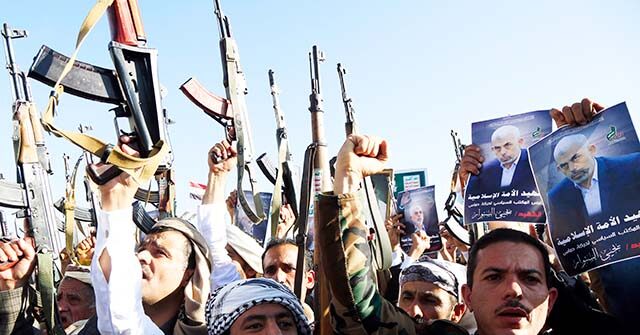The death of Yahya Sinwar, the Hamas leader, was confirmed after he attempted to flee from Israeli forces in Rafah, Gaza, eliciting a statement of mourning from the Iran-backed Houthi movement in Yemen. Reportedly killed during combat with Israeli Defense Forces (IDF), Sinwar was deemed integral in orchestrating the severe assault on Israeli civilians on October 7, 2023. This attack resulted in significant casualties, including the deaths of around 1,200 individuals, alongside the abduction of approximately 250, along with numerous human rights abuses. Sinwar ascended to Hamas leadership following an explosion that killed his predecessor, Ismail Haniyeh, in Tehran, the origins of which have not yet been clarified.
Israeli Prime Minister Benjamin Netanyahu characterized Sinwar’s demise as a pivotal moment in the conflict that erupted on October 7, calling it “the beginning of the end” for Hamas. He urged the terrorist organization to release the 101 hostages still being held to exchange for their lives. While Hamas initiated the current conflict, various other influential Iranian-supported groups, including the Lebanese group Hezbollah and the Houthis, have been implicated in carrying out violent acts aimed at Israel. The Houthis, leveraging Yemen’s strategic location near the Red Sea, have focused on disrupting global commercial shipping, selectively targeting vessels allegedly linked to Israel and its allies, despite broader attacks that include ships with connections to Iran-friendly nations like Russia and China.
In a formal statement, the Houthis expressed admiration for Sinwar, underscoring their belief that a united jihadist front would ultimately defeat Israel. Houthi spokesman Mohammed Abdulsalam echoed sentiments of reverence, claiming, “Martyr Sinwar realized heroic epics in the fight against the criminal Israeli regime.” Condemning American involvement in the conflict, Abdul-Malik al-Houthi, the leader of Ansarullah, asserted that his faction would persist in targeting commercial vessels as a means to support the jihadist fight against Israel, portraying U.S. support as an enabling factor for Israeli actions in Gaza and Lebanon. His rhetoric emphasized the U.S.’s role as a partner in the ongoing atrocities, condemning it alongside the U.N. for its failure to intervene effectively.
A noteworthy part of al-Houthi’s statements included his allegations of targeting numerous ships in the Red Sea, claiming they were all American, Israeli, or British, yet asserting this was unfounded. He further declared that continued support to Palestine via missiles and drones would persist, boasting of the recent operations involving numerous ballistic and cruise missiles, as well as drones deployed against perceived adversaries. Al-Houthi positioned himself among the remnants of Iranian proxy leaders still actively engaging in attacks against Israel, particularly after Israel’s successful elimination of key figures within these terror organizations.
The repercussions of Sinwar’s elimination and potential operational deficiencies among Palestinian terrorist factions were highlighted by Netanyahu, who noted the significant losses faced by key leaders such as Hassan Nasrallah of Hezbollah, thereby claiming the broader terrorist network orchestrated by Iran is undergoing a profound decline. He remarked, “The axis of terror that was built by Iran is collapsing before our eyes,” referencing how the deaths of significant figures within this landscape may change the scene of conflict. Noting the political situation in these regions, Netanyahu urged for collective efforts toward stability and peace, emphasizing that unity among those aspiring for progress in the Middle East can effectively counteract terrorism.
Conclusively, the developments surrounding Sinwar’s death and the Houthis’ renewed commitment to jihad bolster the narrative of escalating tensions prevalent in neoliberal geopolitical discussions. The intertwining of Iranian proxies against Israel signifies the complexities involving state and non-state actors, while the stark rhetoric reinforces the existing narrative of conflict in the region. As tensions persist, with threats of further retaliatory strikes against Israel and continual commitment to assist in the Palestinian struggle, the situation remains fluid, encouraging observers to closely monitor ongoing engagements and responses on the military and diplomatic fronts. The call for collective opposition against the forces of darkness stands as a twofold narrative: a hopeful push for peace contrasted against the ongoing reality of violence and retaliatory measures in the broader conflict landscape.

